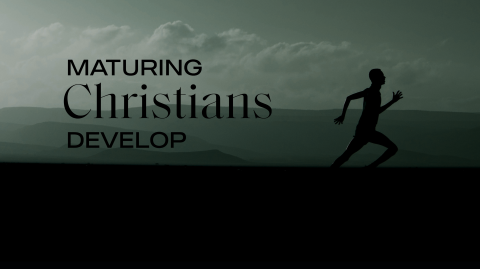"Isaac was old, and his eyes were so weak that he could no longer see…" - Genesis 27:1
This chapter is one of the most tragic in the Book of Genesis. It is the account of how Jacob took by deceit the prophetic blessing Isaac wanted to bestow on his firstborn, Esau. I believe that Isaac’s physical blindness, so essential to the story, is a metaphor of the spiritual blindness that had beset him for years. And it is a warning to all of us 21st century affluent Christians of the dangers of a life of sensual pleasure over spiritual perception.
In the account, Isaac is stated to have lost his physical sight through the weakness brought on by old age. Though he acts as though death is imminent, he will actually not die for many years. But he wants to lay his hands on Esau’s head and pronounce over him the prophetic blessing of a patriarch, the son of Abraham.
He summons Esau, his firstborn and favorite, and tells him to go hunt some game and make him a stew from it so that he can pronounce the blessing on him before he dies. Esau loves his father and desires this blessing, so out he goes to hunt. Rebekah, Isaac’s wife and the mother of these twin boys, prefers Jacob. The reason for this is the word the Lord had spoken to her when the twins were struggling within her womb. God told her, “Two nations are in your womb, and two peoples from within you will be separated; one people will be stronger than the other, and the older will serve the younger” (Gen. 25:23). Rebekah believed this prophecy and no doubt related it to her husband, Isaac. But the account tells us the sad truth: ”The boys grew up, and Esau became a skillful hunter, a man of the open country, while Jacob was a quiet man, staying among the tents. Isaac, who had a taste for wild game, loved Esau, but Rebekah loved Jacob” (Gen. 25:27-28).
For all those years, Isaac was blind to what was really going on with his two sons. One of them, Jacob, was a child of the promise, who, though sinful, cherished the spiritual heritage of Abraham. The other one, Esau, was a child of this world, a man who lived for his five senses and his base appetites. He traded his birthright for a bowl of stew, for which the author of Hebrews calls him “godless.” My question is, why couldn’t Isaac see him for what he really was? And see Jacob also for what he really was? The text gives us a clue: like Esau, he had a “taste for wild game.”
This is the warning in this passage. Isaac was a man of faith, and consistently mentioned by God in this pattern, “I am the God of your fathers, the God of Abraham, Isaac, and Jacob.” But Isaac had a serious character flaw that blinded him to the condition of his sons. What about us? Are we, like Isaac, blinded by our version of “a taste for wild game?” It might be materialism, spectator sports, hobbies, food, nice clothes, travel, vacation homes, nice cars, a higher paying job. Who knows what manner of worldliness can creep into our hearts and make our spiritual eyesight dim? But this tragic blindness on the part of Isaac stands as a timeless warning to Christians in every generation.
"Who knows what manner of worldliness can creep into our hearts and make our spiritual eyesight dim?"
The remedy is faith… the eyesight of the soul. Amazingly, Hebrews 11:20 says “By faith, Isaac blessed Jacob and Esau in regard to their future.” Though this verse, coupled with the tragic account in Genesis 27, may bewilder us, yet I think it refers to how Isaac, in the end, upheld the prophetic blessing he unwittingly made over Jacob, and doubled down by a prophetic curse over Esau.
May the Lord open the eyes of our hearts through faith to see what is truly happening around us spiritually. May he help us to see our children properly and do what is best for God’s eternal purposes in their lives!



